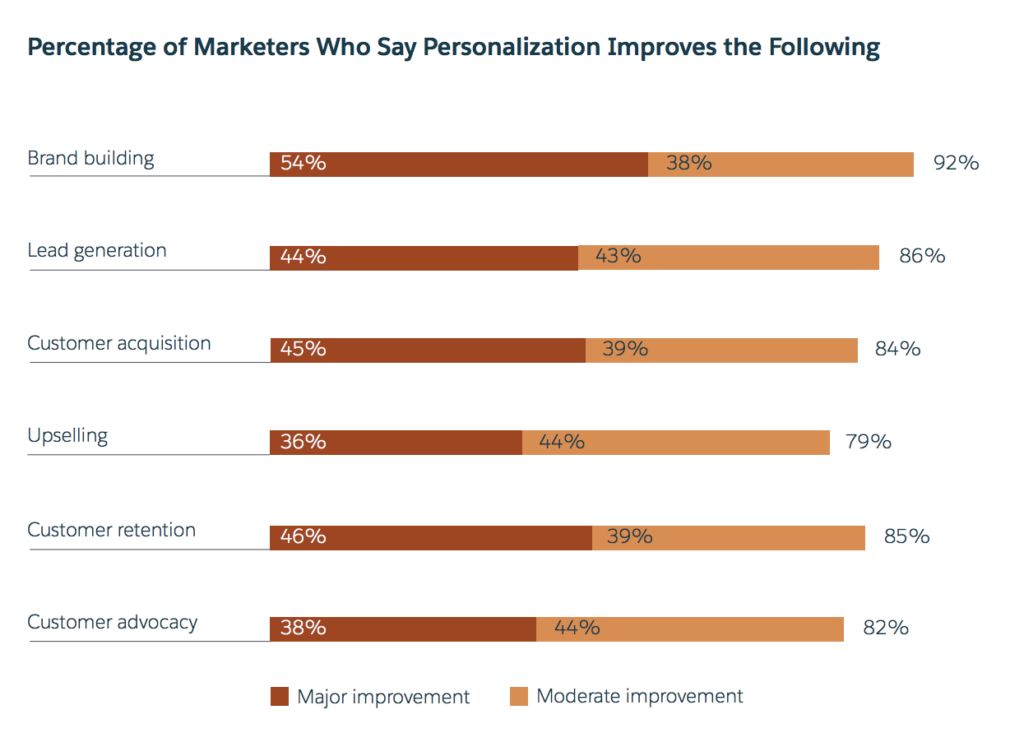The Benefits of Personalization in Digital Marketing pave the way for a revolutionary approach in engaging audiences. In today’s fast-paced digital landscape, consumers are bombarded with countless ads and messages, making it crucial for brands to stand out. Personalization not only enhances user experience but also fosters deeper connections between brands and their customers. By leveraging data and insights, marketers can tailor their strategies to meet the unique preferences and needs of individual users, leading to increased satisfaction and loyalty.
This approach has become increasingly important as consumers expect more relevant and meaningful interactions. Personalization can manifest in various ways, such as personalized email campaigns, targeted social media ads, and customized website experiences. As businesses strive to capture the attention of their audience, understanding the significance of personalization in digital marketing becomes essential for success.
In the digital age, the way we communicate, share information, and conduct business has dramatically transformed. This evolution is largely driven by technology, which continues to influence our daily lives in unprecedented ways. From social media platforms to artificial intelligence, the tools we use shape not only our interactions but also our perceptions of the world around us. This article delves into the various aspects of this digital transformation, its impact on society, and what the future may hold for us as we navigate this ever-changing landscape.One of the most significant changes brought about by technology is the rise of social media.

Platforms such as Facebook, Twitter, Instagram, and TikTok have revolutionized the way we connect with others. Social media allows individuals to share their thoughts, experiences, and ideas instantaneously with a global audience. This connectivity fosters a sense of community but also raises concerns regarding privacy and mental health. The constant comparison to others’ curated lives can lead to feelings of inadequacy and anxiety.
However, social media also provides a platform for marginalized voices, enabling important conversations around social issues, politics, and culture.Moreover, businesses have harnessed the power of social media as a marketing tool. Companies can reach their target audiences more effectively than ever before, using data analytics to tailor their messaging. The ability to engage directly with customers through comments, likes, and shares creates a more personalized experience.
However, this shift in power dynamics also means that businesses must be more transparent and accountable. A single misstep can lead to a public relations crisis, as consumers increasingly expect brands to align with their values.In addition to social media, artificial intelligence (AI) has become a cornerstone of the digital landscape. From chatbots providing customer service to machine learning algorithms predicting consumer behavior, AI is streamlining processes across various industries.
This technology enhances efficiency, allowing businesses to focus on strategic decision-making rather than mundane tasks. However, the rise of AI also raises ethical questions about job displacement. As machines increasingly perform tasks traditionally held by humans, there is concern over the future of employment. How do we prepare the workforce for an AI-driven economy? Reskilling and upskilling initiatives will be crucial in addressing these challenges.Another significant aspect of the digital transformation is the rise of e-commerce.
The convenience of online shopping has reshaped consumer behavior. With just a few clicks, individuals can purchase goods from around the world. This shift has forced traditional brick-and-mortar stores to adapt or risk obsolescence. Many retailers are now blending their physical and online presence, creating omnichannel experiences that cater to consumers’ preferences. However, the surge in online shopping is also raising questions about sustainability.
The environmental impact of packaging and shipping must be addressed as we embrace this convenience.Moreover, the concept of remote work has gained traction, especially in light of the global pandemic. Many companies have recognized the benefits of flexible work arrangements, leading to a re-evaluation of traditional office culture. Remote work can enhance productivity, reduce commuting time, and improve work-life balance.
However, it also presents challenges, such as feelings of isolation and difficulties in communication. Employers and employees alike must find ways to maintain a sense of connection and collaboration in a virtual environment.As we look to the future, it’s essential to consider the ethical implications of our digital choices. Data privacy has become a hot-button issue, as individuals are increasingly aware of how their information is being used.
The Cambridge Analytica scandal highlighted the potential for data misuse, prompting calls for stricter regulations around data protection. As consumers, we must advocate for transparency and accountability from the companies that collect our information.Additionally, the digital divide remains a pressing concern. While technology has the potential to empower individuals and communities, not everyone has equal access to these resources. Disparities in internet connectivity and digital literacy can exacerbate existing inequalities.
Efforts to bridge this gap are vital in ensuring that everyone can participate in the digital economy. Community initiatives, government policies, and corporate responsibility can all play a role in creating a more inclusive digital landscape.In conclusion, the digital transformation is reshaping our lives in profound ways. Social media, artificial intelligence, e-commerce, and remote work are just a few examples of how technology is influencing our interactions and experiences.
As we embrace these changes, it’s crucial to remain mindful of the ethical implications and strive for a more equitable digital future. By fostering transparency, promoting digital literacy, and advocating for privacy protection, we can harness the power of technology to create a society that benefits everyone.Ultimately, the way we navigate this digital landscape will define our collective future. Embracing innovation while addressing the challenges it presents will be key to ensuring that technology serves as a force for good.
As we continue to adapt and evolve, let us remember that at the heart of these advancements is the human experience. By prioritizing empathy and understanding, we can work towards a future that is not only technologically advanced but also inclusive, compassionate, and sustainable.



